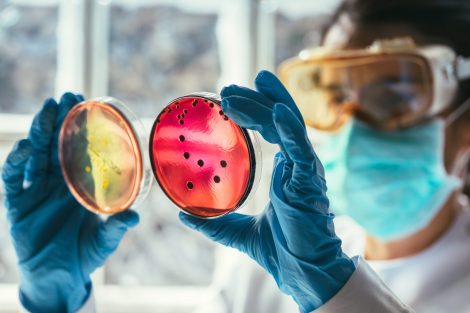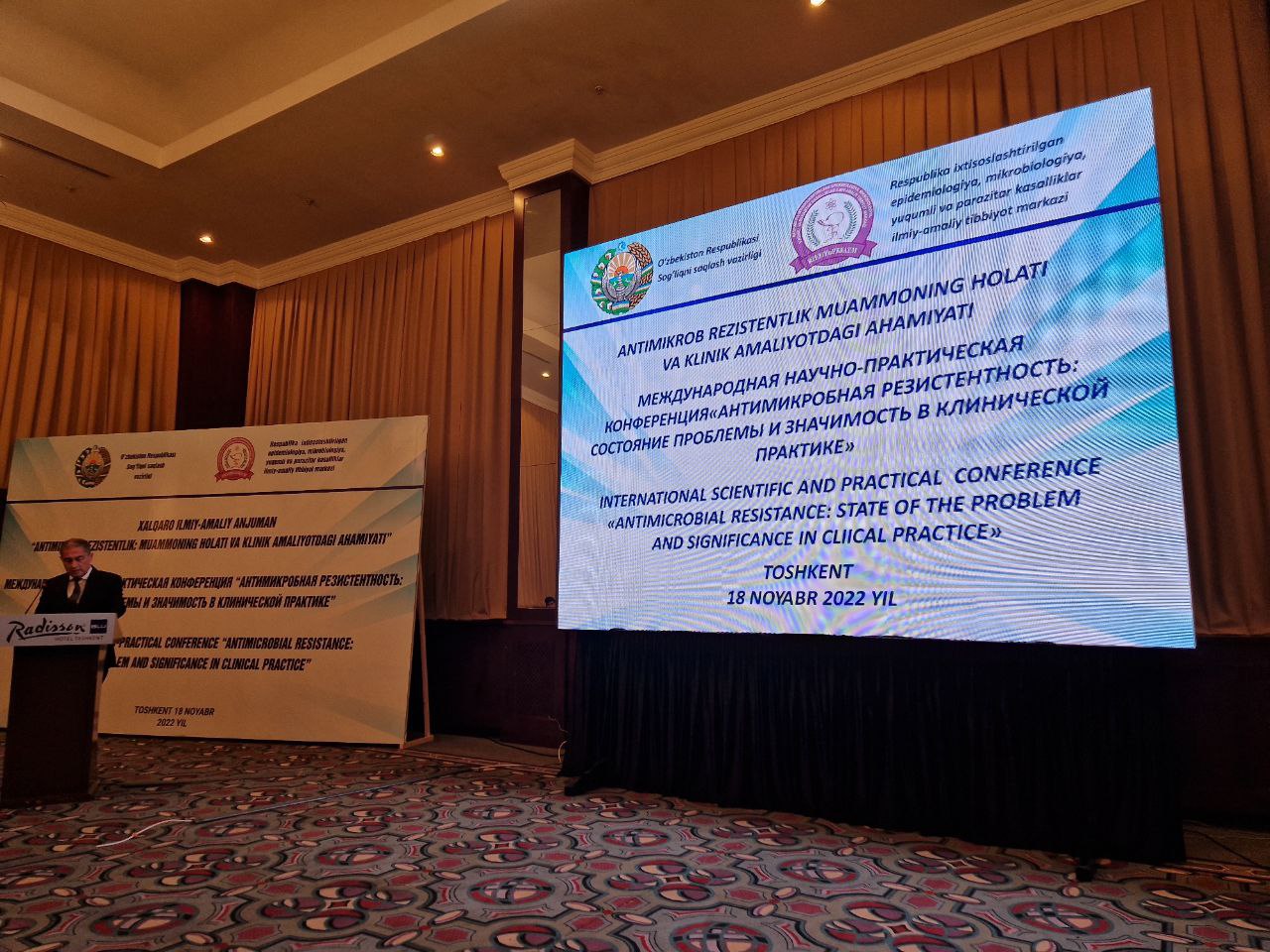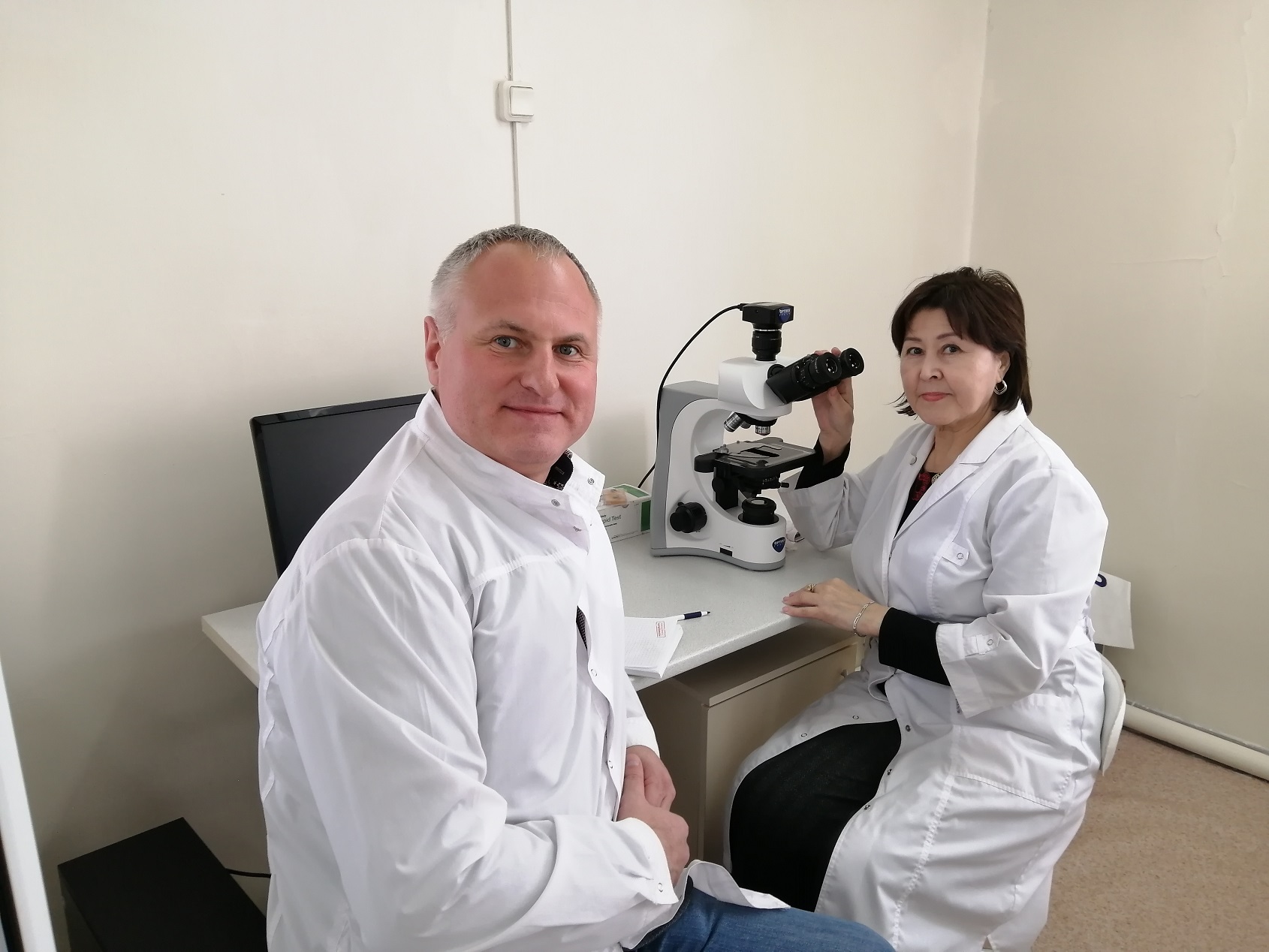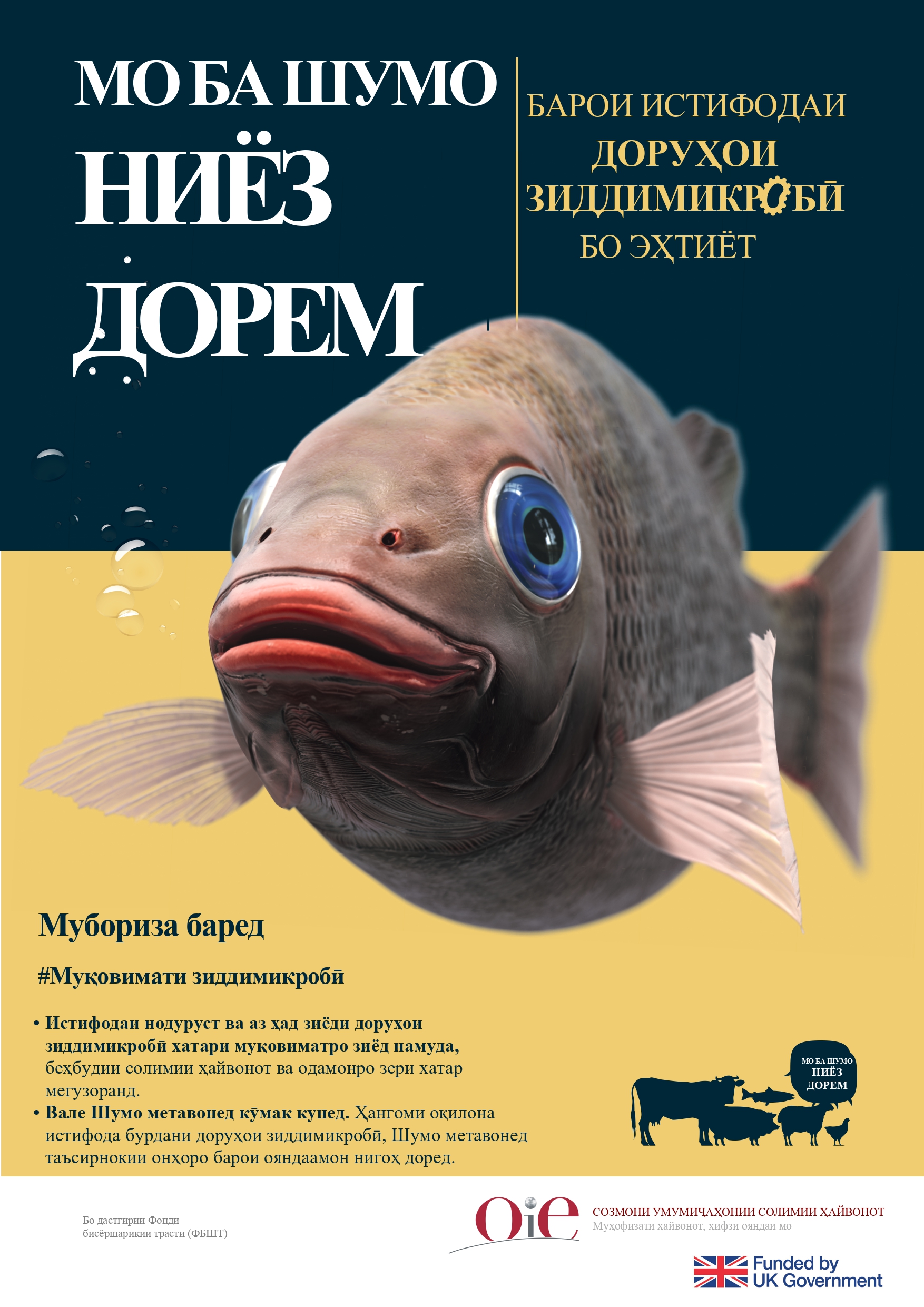The Quadripartite organizations including the Food and Agriculture Organization of the United Nations (FAO), the United Nations Environment Programme (UNEP), the World Health Organization (WHO), and the World Organisation for Animal Health (WOAH, founded as OIE) from 18 to 24 November traditionally holds an annual global campaign to raise public awareness of the problem and threat of antimicrobial resistance (AMR): “World Antimicrobial Awareness Week” within their mandates.
AMR poses multiple threats to humans, animals, plants, and the environment. The problem affects everyone without exception therefore, international, and inter-sectoral cooperation is crucial to maintain the effectiveness of this group of drugs, which will help achieve the goals of sustainable development, save millions of human and animal lives, preserve antimicrobial agents for future generations and protect us from antimicrobial-resistant infections. This international and intersectoral collaboration takes place under the “One Health” approach, according to this comprehensive approach, animals, people, plants, and environmental health are inextricably linked and interdependent. Inappropriate use of antimicrobials is their use unnecessarily, for too short a period, in low doses, and most importantly, their use for diseases when the drug does not cure, the experts warn.
On the first day of the WAAW, the Republican Specialized Scientific and Practical Medical Center for Epidemiology, Microbiology, Infectious and Parasitic Diseases of the Ministry of Health of Uzbekistan initiated the International Scientific-Practical Conference “Antimicrobial Resistance: State of the Problem and Importance in Clinical Practice” in “One Health” approach. The public health sector of Uzbekistan acts as a driver to combat AMR. During the conference, WOAH Sub-Regional Representation for Central Asia had the opportunity to present the Organisation’s activities in combating AMR, as well as to show the global contribution of the veterinary to AMR control.
Our Organisation advocates coordinated action between the public health, veterinary and environmental sectors within a “One Health” approach. WOAH encourages national Veterinary Services to ensure the responsible and rational use of antimicrobials in animals in accordance with WOAH’s intergovernmental standards, thereby guaranteeing their effectiveness.
In September 2022, the Organisation launched its new system for the collection of antimicrobial use data: ANImal antiMicrobial USE (ANIMUSE) Global Database, which has been collected in the form of a questionnaire since 2015. ANIMUSE will allow the participants to submit their AMU data, assist in the calculations, provide access to historical data, and introduce components for data visualization, among other features.
According to the Sixth Annual Report on Antimicrobial Agents Intended to Use in Animals, global use of antimicrobial agents in animals decreased by 27% in 3 years, from 2016 to 2018. Also, AMU for growth promotion is no longer practiced in 69% of participating countries, meaning 108 participating countries are not using antimicrobial agents for growth promotion as of 2020. The practice of using antimicrobial agents in healthy animals to increase productivity should be phased out in the absence of risk analysis.
In the framework of WAAW-2022, the representative of WOAH Sub-Regional Representation for Central Asia visited Kostanay Regional University named after A. Baitursynov, and its division – Agricultural Institute named after V.Dvurechenskiy.
During the visit the meetings were conducted with the leadership – Vice-rector on research, innovations, and digitalization Mr. Zharlygasov Zhenis, Head of the Department for Food Products Technology Mrs. Inna Brel-Kiseveva, Head of Scientific-Innovation Centre, Professor Raushan Ryshanova and others. Different departments and units of the Institute have been visited including microbiology, virology, immunology, and biotechnology where the Institute demonstrated its achievements in science, state-of-art equipment, and capacities. In the Institute the work on antimicrobial resistance is being conducted in microorganisms isolated from animals with different pathologies with the use of the classical methods (disc diffusion) and molecular ones as well. In the laboratory DNA extraction is being conducted from the resistant strains and two specialists are at the stage of finalizing their PhDs on AMR. It was good to know that the AMR issue is paid special attention and all students get the necessary knowledge about the challenge within different subjects to be studied.
Partners discussed the projects that Sub-Regional Representation is now implementing, and potential cooperation between University and WOAH. University staff learned about the regional project on Veterinary Workforce Development including veterinary legislation support, Veterinary Statutory Body development, and modernization of study curricula for veterinarians and para-veterinarians. Attention was paid to continuing professional development and the involvement of WOAH staff in this activity. WOAH Guidelines and Recommendations on competencies and curricula for veterinarians and para-veterinarians have been delivered to the University.
Various activities related to AMR control took place in Tajikistan during the week. This year WOAH in collaboration with FAO and the National Veterinary Services has focused its activity on aquatic animals. Within the activities planned in the Multi-Partner Trust Fund (MPTF) project “Capacity building within One Health to support priority actions to combat antimicrobial resistance in Tajikistan (September 2021 – August 2023)” WOAH Sub-Regional Representation for Central Asia conducted a training activity on biosecurity measures in fish farms with the collaboration of an international expert from Italy. Biosecurity in fish farms, in addition to being a strategic point of the WOAH’s Aquatic Animal Health Strategy 2021-2025, is considered a crucial point in AMR control, avoiding the spread of diseases through correct management actions, and consequently reducing the use of antimicrobials. The training activity in Tajikistan took place on 22 and 23 November in two different regions and saw the participation of farmers and Veterinary Services. Before the training, an awareness activity on AMR was carried out explaining the impact that aquaculture can have on this problem and distributing specific WOAH material translated into the Tajik language.



